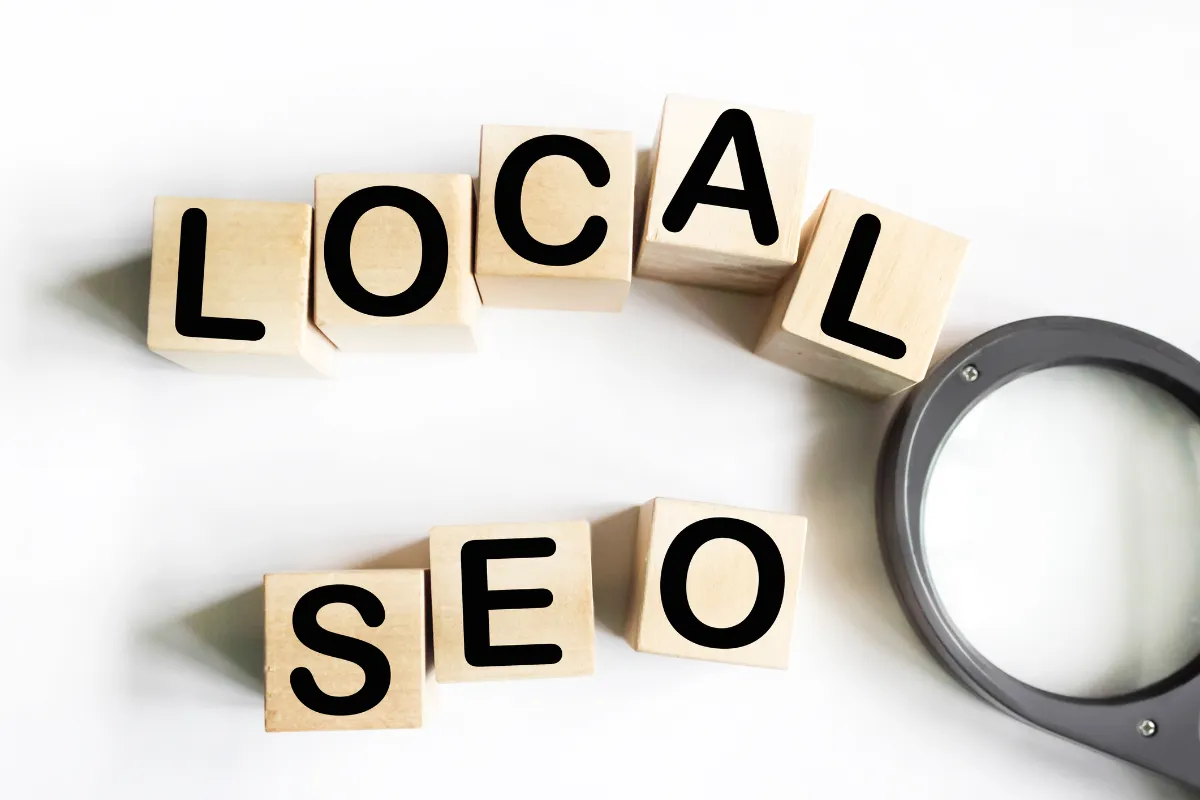Are you looking to expand your local SEO efforts beyond Google? You’re not alone! As the world of search engine optimization continues to evolve, it’s important to keep up with the latest platforms and strategies for optimizing your website for maximum visibility.
In this blog post, we’ll take a look at the emerging landscape of local SEO and explore how you can leverage alternative search engines and local directories to boost your rankings. Get ready to dive in and start exploring beyond Google – there are plenty of opportunities out there!

The Expanding World of Local SEO
With the rise of digital technology and the increasing number of people relying on the internet for their daily needs, the world of local SEO is expanding at a rapid pace. It’s no longer enough to focus solely on optimizing your website for Google – there are a multitude of alternative search engines and local directories that can greatly enhance your online visibility.
These emerging platforms provide an opportunity to reach a wider audience and tap into niche markets that may not be as saturated with competition. By diversifying your local SEO efforts, you can increase your chances of ranking higher in search results and attracting more targeted traffic to your website.
Harnessing the Power of Alternative Search Engines and Local Directories
Alternative search engines like Bing, Yahoo, and DuckDuckGo have gained significant traction in recent years, and optimizing your website for these platforms can give you a competitive edge. Additionally, local directories beyond Google Maps, such as Apple Maps and Bing Places, can also play a crucial role in improving your online visibility and driving more customers to your business.
As the landscape of local SEO continues to evolve, it’s important to adapt and explore new platforms and strategies. By embracing the expanding world of local SEO, you can position your business for success and stay ahead of the competition. So, let’s dive in and discover the exciting opportunities that await beyond Google!

The Importance of Alternative Search Engines
As the world of search engine optimization continues to evolve, it’s crucial to recognize the importance of alternative search engines in your local SEO strategy. While Google dominates the search engine market, there are other platforms that can greatly impact your online visibility.
Why are alternative search engines important? For starters, they offer a unique user base that may not be reached solely through Google. By optimizing your website for platforms like Bing, Yahoo, and DuckDuckGo, you can tap into a different audience and potentially gain a competitive edge.
Additionally, alternative search engines often have their own unique algorithms and ranking factors. This means that your website may perform differently on these platforms compared to Google. By understanding and optimizing for these differences, you can improve your chances of ranking higher and attracting more organic traffic.
It’s also worth noting that alternative search engines are becoming increasingly popular among certain demographics. For example, Bing has a significant user base among older individuals, while DuckDuckGo appeals to those concerned about privacy. By expanding your local SEO efforts to include these platforms, you can reach a broader range of potential customers.
Local Directories Beyond Google Maps
When it comes to local SEO, many businesses focus primarily on optimizing their Google Maps listing. While this is certainly important, there are also other local directories beyond Google Maps that can greatly enhance your online visibility. These directories provide additional opportunities for your business to be discovered by potential customers, so it’s essential to make the most of them.
One of the most popular local directories beyond Google Maps is Yelp. Yelp allows users to search for businesses based on location, category, and customer reviews. By claiming your business listing on Yelp and optimizing it with accurate information and compelling descriptions, you can increase your chances of being found by users in your area. Additionally, actively encouraging satisfied customers to leave positive reviews on Yelp can greatly boost your reputation and attract even more customers.
Another important local directory to consider is TripAdvisor. While primarily known for its travel-related content, TripAdvisor also features a directory of local businesses, including restaurants, hotels, and attractions. Optimizing your business listing on TripAdvisor can help you reach a wider audience of travelers and tourists who are looking for recommendations in your area. Make sure to include high-quality photos, detailed descriptions, and respond promptly to customer reviews to establish credibility and attract more visitors.

Beyond the Basics: Exploring Niche Local Directories for Enhanced Local SEO
In addition to Yelp and TripAdvisor, there are many other local directories that can have a significant impact on your local SEO efforts. These directories vary depending on your industry and location, so it’s important to do some research and identify the most relevant directories for your business. Examples include Angie’s List for service-based businesses, Zillow for real estate, and Houzz for home improvement and design.
By optimizing your business listings on these local directories, you can increase your online visibility and attract more targeted traffic to your website. Remember to keep your information up to date, encourage positive reviews from customers, and engage with users who leave feedback. The more active and reputable your presence is on these directories, the more likely you are to rank higher in search results and gain new customers. So don’t overlook the power of local directories beyond Google Maps – they can be a game-changer for your local SEO efforts.
Optimizing for Yelp and TripAdvisor
When it comes to local SEO, it’s essential to optimize your business listings on popular local directories beyond Google Maps, such as Yelp and TripAdvisor. These platforms have a significant impact on your online visibility and can greatly enhance your chances of being discovered by potential customers.
Let’s start with Yelp. As one of the most widely used local directories, Yelp allows users to search for businesses based on location, category, and customer reviews. To make the most of this platform, start by claiming your business listing on Yelp. This will give you more control over how your business appears in search results and allows you to provide accurate and up-to-date information to potential customers.
Once you’ve claimed your listing, it’s time to optimize it. Start by ensuring that all your business information is complete, accurate, and consistent with what is listed on your website and other directories. This includes your business name, address, phone number, and website URL. Make sure to also include a compelling description of your business that highlights your unique selling points and attracts potential customers.

Unlocking the Power of Reviews: Building Trust and Reputation on Yelp
In addition to optimizing your business information, encourage satisfied customers to leave positive reviews on Yelp. Positive reviews not only enhance your reputation but also act as social proof to potential customers. Engage with customers who leave reviews, responding promptly and professionally to their feedback, whether it’s positive or negative. This shows that you value customer feedback and are dedicated to providing exceptional service.
Now, let’s move on to TripAdvisor. While primarily known for its travel-related content, TripAdvisor also features a directory of local businesses, making it an excellent platform for restaurants, hotels, and attractions. Optimizing your business listing on TripAdvisor is similar to Yelp – claim your listing, provide accurate information, and engage with customer reviews.
When optimizing your listing on TripAdvisor, pay special attention to high-quality photos. Visual content plays a crucial role in attracting customers and giving them a sense of what to expect from your business. Make sure to upload enticing photos that showcase your products, services, or ambiance. In addition, provide detailed descriptions that highlight the unique features and benefits of your business.
Building Your Presence on Social Media Platforms
Social media platforms have become a crucial component of any successful local SEO strategy. With billions of users worldwide, these platforms offer a unique opportunity to engage with your audience, build brand awareness, and drive traffic to your website. In this section, we’ll explore the importance of building your presence on social media platforms and provide tips on how to leverage them effectively.
First and foremost, social media platforms allow you to connect with your target audience on a more personal level. By sharing relevant content, engaging with your followers, and responding to their comments and messages, you can foster a sense of community and build strong relationships with potential customers. This not only helps increase brand loyalty but also encourages word-of-mouth recommendations and referrals.
To make the most of social media platforms, it’s important to choose the right platforms for your business. Consider your target audience and their preferred platforms. For example, if you’re targeting a younger demographic, platforms like Instagram or TikTok might be more effective. On the other hand, if you’re targeting professionals or B2B clients, LinkedIn might be the best choice. By focusing your efforts on the platforms where your target audience is most active, you can maximize your reach and engagement.

Content that Captivates: Establishing Thought Leadership through Compelling Social Media Posts
Once you’ve chosen the right platforms, it’s crucial to create and share compelling content. This could include informative blog posts, engaging videos, eye-catching images, or interactive quizzes. The key is to provide value to your audience and showcase your expertise in your industry. By consistently delivering high-quality content, you can position yourself as a thought leader and establish trust with your followers.
In addition to creating content, social media platforms also offer advertising opportunities to reach a wider audience. Platforms like Facebook, Instagram, and LinkedIn provide robust advertising tools that allow you to target specific demographics, interests, and behaviors. By strategically placing ads on these platforms, you can increase brand visibility, drive traffic to your website, and generate leads.
Lastly, don’t forget to track and analyze your social media efforts. Most platforms provide analytics and insights that allow you to measure the performance of your posts, engagement rates, and audience demographics. By analyzing this data, you can gain valuable insights into what resonates with your audience and refine your social media strategy accordingly.
Embracing Voice Search Optimization
Voice search is revolutionizing the way people search for information online, and it’s important for businesses to adapt their local SEO strategies to capitalize on this trend. With the increasing popularity of virtual assistants like Siri, Alexa, and Google Assistant, voice search is becoming more prevalent than ever before. Embracing voice search optimization can give your business a competitive edge and help you reach a wider audience.
To optimize for voice search, start by focusing on conversational keywords and phrases. Voice searches are often longer and more conversational in nature, so it’s important to include natural language and long-tail keywords in your content. Think about how your customers would phrase their search queries when using voice search and incorporate those phrases into your website copy and meta descriptions.

Voice Search Ready: Crafting Clear and Concise Answers to Common Questions
In addition to keyword optimization, it’s crucial to provide concise and direct answers to commonly asked questions in your industry. Virtual assistants pull information from featured snippets, so having clear and concise answers to popular questions can help your website appear in voice search results.
Finally, make sure your website is mobile-friendly and loads quickly. Voice searches are commonly conducted on mobile devices, so it’s essential to provide a seamless and user-friendly experience. Ensure your website is responsive, easy to navigate, and provides a positive user experience across all devices.
By embracing voice search optimization, you can position your business to succeed in the changing landscape of local SEO and attract more customers through voice-enabled devices. Don’t miss out on the opportunities presented by voice search – start optimizing your website today.
Enhancing Mobile Responsiveness for Better Visibility
In today’s digital age, it’s essential to ensure that your website is mobile-responsive for better visibility in local SEO. With the majority of users accessing the internet on their mobile devices, having a mobile-friendly website is no longer optional – it’s a necessity. In this section, we’ll explore the importance of enhancing mobile responsiveness and provide tips on how to optimize your website for mobile devices.
First and foremost, having a mobile-responsive website improves user experience. When users visit your site on their smartphones or tablets, they expect it to be easy to navigate, fast-loading, and visually appealing. A website that is not mobile-friendly can be frustrating for users, resulting in high bounce rates and decreased engagement. By enhancing mobile responsiveness, you can provide a seamless and user-friendly experience, keeping visitors on your site longer and increasing the chances of conversion.

Mobile-Friendly Websites: Elevating SEO and User Experience for Better Rankings
Mobile responsiveness also plays a significant role in search engine rankings. Search engines like Google prioritize mobile-friendly websites in their search results, as they prioritize user experience. If your website is not optimized for mobile devices, it may be penalized in search rankings, making it harder for potential customers to find you. By enhancing mobile responsiveness, you can improve your chances of ranking higher in search results and attracting more organic traffic.
When optimizing your website for mobile devices, there are a few key factors to consider. First, ensure that your website design is responsive, meaning it adapts to different screen sizes and resolutions. This ensures that your content is displayed properly and legibly on all devices. Avoid using large images or complex layouts that may slow down loading times and frustrate users. Optimize your images for mobile devices and compress them if necessary.
Speeding Up for Success: Enhancing Mobile SEO with Faster Loading Times
Second, focus on optimizing your website’s loading speed. Mobile users expect fast-loading websites, and a slow-loading site can lead to high bounce rates. Minimize HTTP requests, enable browser caching, and reduce the size of your CSS and JavaScript files to improve loading times. You can also consider implementing AMP (Accelerated Mobile Pages) to create a faster, streamlined version of your website specifically for mobile users.
Lastly, ensure that your website’s content is easily readable on smaller screens. Use legible font sizes, clear headings, and sufficient spacing between elements to enhance readability. Avoid using pop-ups or intrusive ads that may hinder the user experience on mobile devices.
By enhancing mobile responsiveness, you can improve your website’s visibility in local SEO and provide a better user experience for mobile users.










